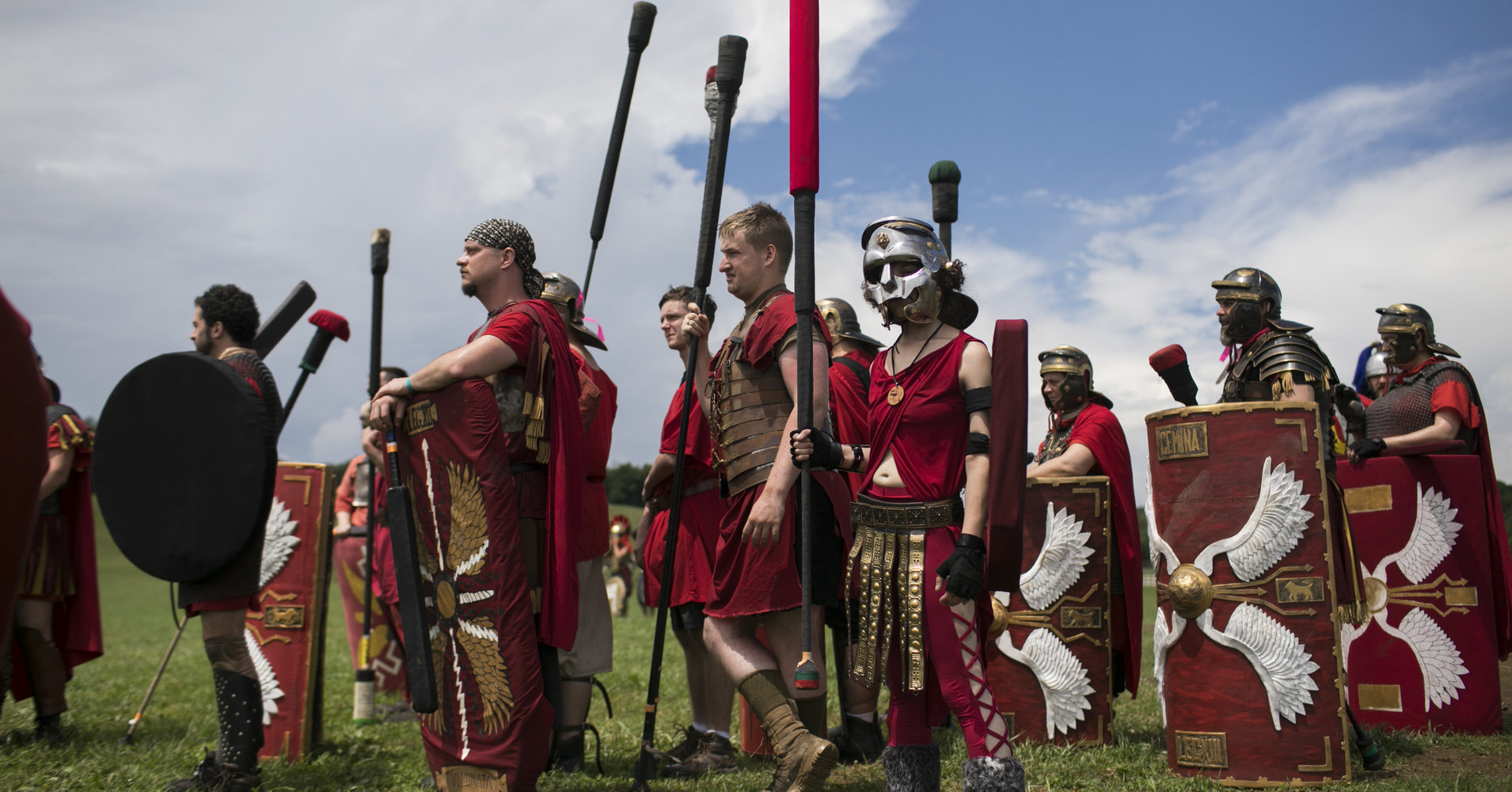[ad_1]
SLIPPERY ROCK, Penn. ― Hannah Hoffman usually feels more comfortable close-combat fighting than bellydancing, but on a summer evening in 2011 ― one of those nights that was “warm but not too warm” ― she decided to give the latter a try.
After a long day on the battlefield, she changed out of her obligatory armor into pants and a T-shirt and joined some friends around a bonfire. People drummed on their laps in disjointed spurts. Every so often, Hoffman jumped in the bellydancing circle forming in front of her and moved to the music before feeling self-conscious and hopping out again. Her friends were laughing, singing and cheering as day turned into night.
“Typical Ren Faire downtime,” she described to HuffPost.
It was Hoffman’s third year at Ragnarok, a weeklong, immersive medieval-fantasy event that draws 1,500 self-described nerds and history buffs from all over the world to the picturesque grounds of Pennsylvania’s Cooper’s Lake each year, where they use foam-padded boffers and shields in a series of full-contact battle games. With her red curls and assured smile, the 27-year-old looks like Princess Merida incarnate, if the Pixar protagonist had black line tattoos stretching from her shoulders to her fingers.
In the thick of the medieval-inspired revelry, Hoffman said a man she’d once dated for three months approached her. According to Hoffman, he walked by and purposefully bumped his shoulder against hers ― “that dumb, I’m going to flirt with you by hurting you thing.” She pushed back, and he responded by challenging her to a grappling match, a sort of play-wrestling familiar to fantasy battle doyens.
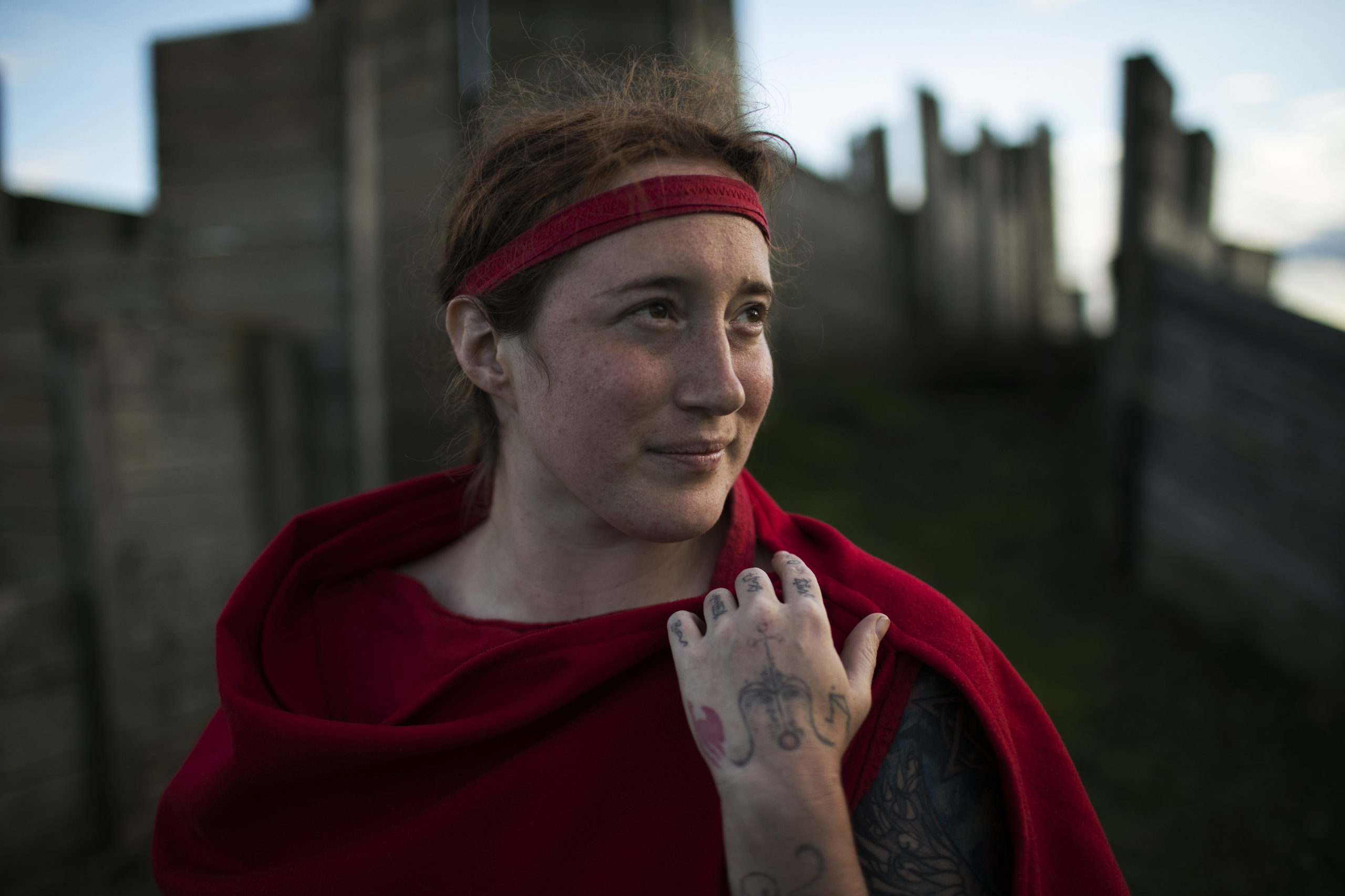
Maddie McGarvey for HuffPost
Despite being under 5 feet tall, Hoffman holds her own on the battlefield, where women are the minority. So she accepted and the two began to wrestle publicly. Her small stature proved an advantage, Hoffman recalled, as she was able to slip out of his grasp again and again. Eventually the two tumbled to the floor and he climbed on top of Hoffman. She said she was trying to shoulder him off when he grabbed a heap of her long red hair and used it to slam her head, forehead first, into a tree root protruding from the ground.
Grapplers typically adhere to established conventions to ensure they’re fighting in a fair and friendly manner. “It’s called having honor,” Hoffman explained. But she believes the man, who she said had acted condescendingly toward her since she broke up with him, had a chip on his shoulder that “wouldn’t let him lose to a woman.”
After her face hit the tree, Hoffman “went limp.” Friends stepped in and broke up the fight. Some accompanied Hoffman back to her camp to make sure she was OK. According to her, blood was spilling from her nose and one of her pupils had become dilated.
Hoffman said that witnesses to the skirmish agreed that the man played dirty. And yet, most brushed off the act of violence as nothing serious, offering some variation of “he’s just an asshole” as an excuse. Because her friends were so nonchalant about the incident, Hoffman presumed Ragnarok security would feel the same way. She decided the attack wasn’t grave enough to get event officials involved.
“I couldn’t wrap my head around why people weren’t taking it more seriously,” she said.
A few days later, Hoffman went to the hospital. After an MRI scan, she learned that she’d suffered a concussion. To this day, Hoffman said that a hit to her head triggers a nosebleed like the one her ex gave her.
Hoffman’s account of her injuries in 2011 isn’t an anomaly. Over the past 10 years, she said she’s experienced both physical and verbal abuse at the hands of male Ragnarok attendees on multiple occasions. And she’s not alone.
Hoffman’s story echoes several other women’s accounts of a gender imbalance that permeates the male-dominated fantasy world. Over a dozen female participants at this year’s battle spoke to HuffPost on the record about the gendered harassment or assault they’ve experienced, often with no recourse.
“Things happen to strong women specifically,” Hoffman told HuffPost. “To knock us down.”
“This Is Our Week To Be Home”
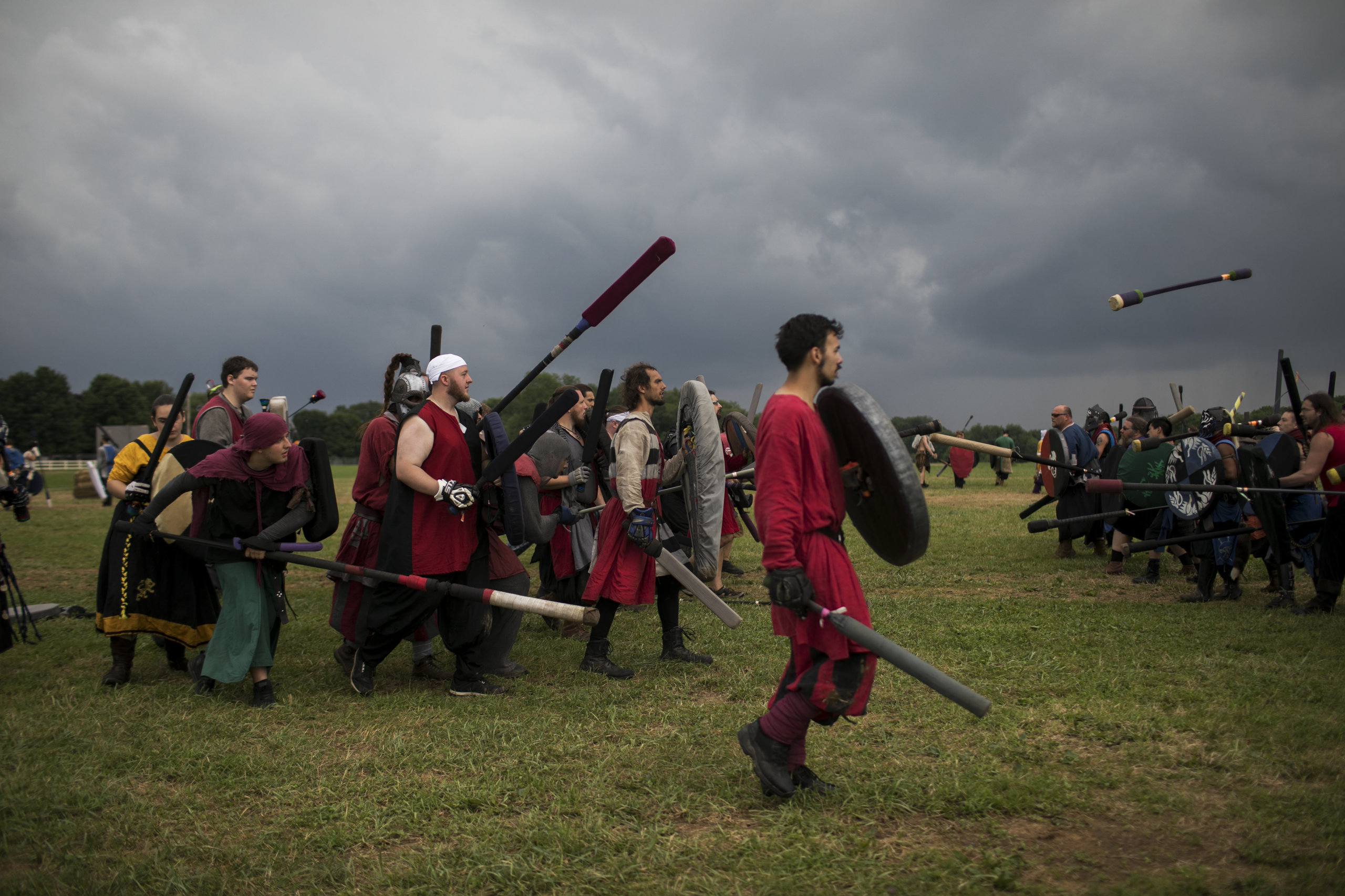
Maddie McGarvey for HuffPost
Hoffman’s experience in 2011 didn’t deter her from returning to Ragnarok, the largest event under the Dagorhir battle game umbrella. (Dagorhir, for those unfamiliar with Elvish, is the word for “battle lords” in J.R.R. Tolkien’s beloved series.) Every year, participants, also called “Dagorhirrim,” leave their day jobs and birth names behind, for one glorious week of role-playing, camping, crafting, partying and, of course, fighting.
For most attendees, Rag, as it’s called, isn’t just a whimsical excursion or silly pastime ― it’s a way of life. On site, Dagorhirrim answer primarily to “Dag names,” mythical personas complete with intricate backstories and genealogies.
A 22-year veteran who goes by Sir Hamish, for example, explained that he was once a mere dwarf, born and raised on Mt. Fuji, until he unwittingly destroyed his grandfather’s katana ― a Japanese sword ― and was cursed to transform into a panda bear come nightfall. (He now identifies as a dwarf/werepanda.)
Dagorhirrim camp, fight and generally fraternize with their units ― chosen families of sorts that are united by shared values, skills and tastes in particular pockets of fantasy-historical lore. The “Blood Horde,” a society of orcs, prizes equality over all else. Meanwhile, “No Quarter!” ― inspired by pirate lingo ― prides itself on “eradicating the weak.”
By its nature, the medieval-themed event transports attendees back hundreds of years to a time when “women were subordinate to men,” as Lisa Bitel, a professor of history and religion at the University of Southern California explained. Most attendees vow not to talk about real-life politics, religion or other non-battle responsibilities during the course of the event, leaving the trials of life in 2018 behind. “Trump” is, in many units, an unutterable word, and the Me Too movement is still centuries away.
“This is our week to be home,” a Blood Horde member who goes by the Dag name Bane told HuffPost. “The rest of the year we’re traveling.”
Hoffman ― whose Dag name is Leona ― was drawn to her unit, Sparta, because Spartan women historically had more freedom and power than their Athenian contemporaries; they were celebrated, rather than shamed, for being dominant and sexually active. At Ragnarok, however, Hoffman said these same qualities are met with resistance, disdain and sometimes even violence.
Female participants face the same double standards that plague women in the outside world, many expressed to HuffPost: Those who engage in sexual activity are often dubbed “fighting sex bots” or “Daga-hoes,” while women who don’t are labelled frigid and snobbish. In “non-com,” or non-combat, settings, colloquialisms like “tent is consent” color sexual activity, which frequently occurs under the influence of heavy drinking. Many attendees wear costumes and adopt personas during their time at Rag, which some interpret as a “blank check to act however they want,” participant Sev Gedra said.
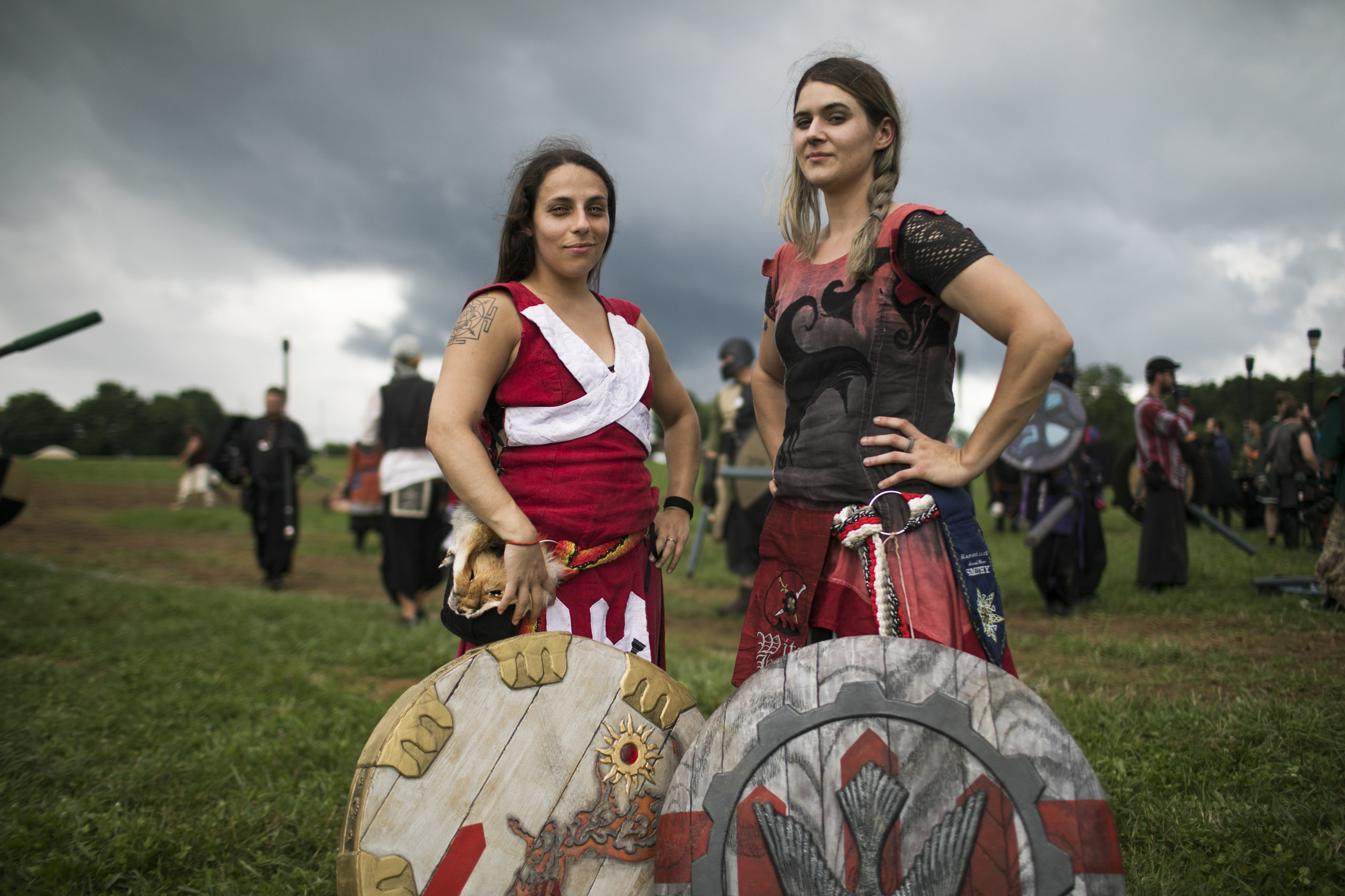
Maddie McGarvey for HuffPost
Throughout our interviews, female Dags recounted inappropriate behavior on the part of the male peers that ranged from microaggressions to criminal offenses. Attendee Audrey Grace, who adopted the name Ishtar, spoke of an incident in which a man in the Roman unit was kicked out for exposing himself repeatedly.
“It’s period accurate not to wear anything under your kitel,” she said. “But he continued to manspread.”
At this year’s Ragnarok, Grace said a man invited her to go back to his tent with him. When she declined, he proceeded to grope her waist and thigh, forcing his tongue inside her mouth until a male friend of hers interceded.
“That was the point where I was like, I’m tired of being polite,” Grace said.
Adrianne Marozzi, a former Dagorhir board member who goes by Silk, recalled the time a fellow attendee bragged publicly about surreptitiously taking her photo while she was having sex with her boyfriend in a tent on the campgrounds. He then gloated, according to Marozzi, that he masturbated to the picture.
“Everybody just started laughing,” Marozzi said. “It didn’t occur to anybody that this was alarming behavior.”
In conversations with HuffPost, male attendees commonly rejected suggestions that the gender dynamics at Ragnarok were cause for concern. One self-described hobbit named Sun said, “For every greasy skid, there’s a bunch of people that care.”
“We’re all nerds, so we’re not, like, shitty people,” he said.
Hoffman disagreed. “People think nerds are all chivalrous nice guys,” she said. “No.”
“You Get Shamed Into Not Saying Anything”
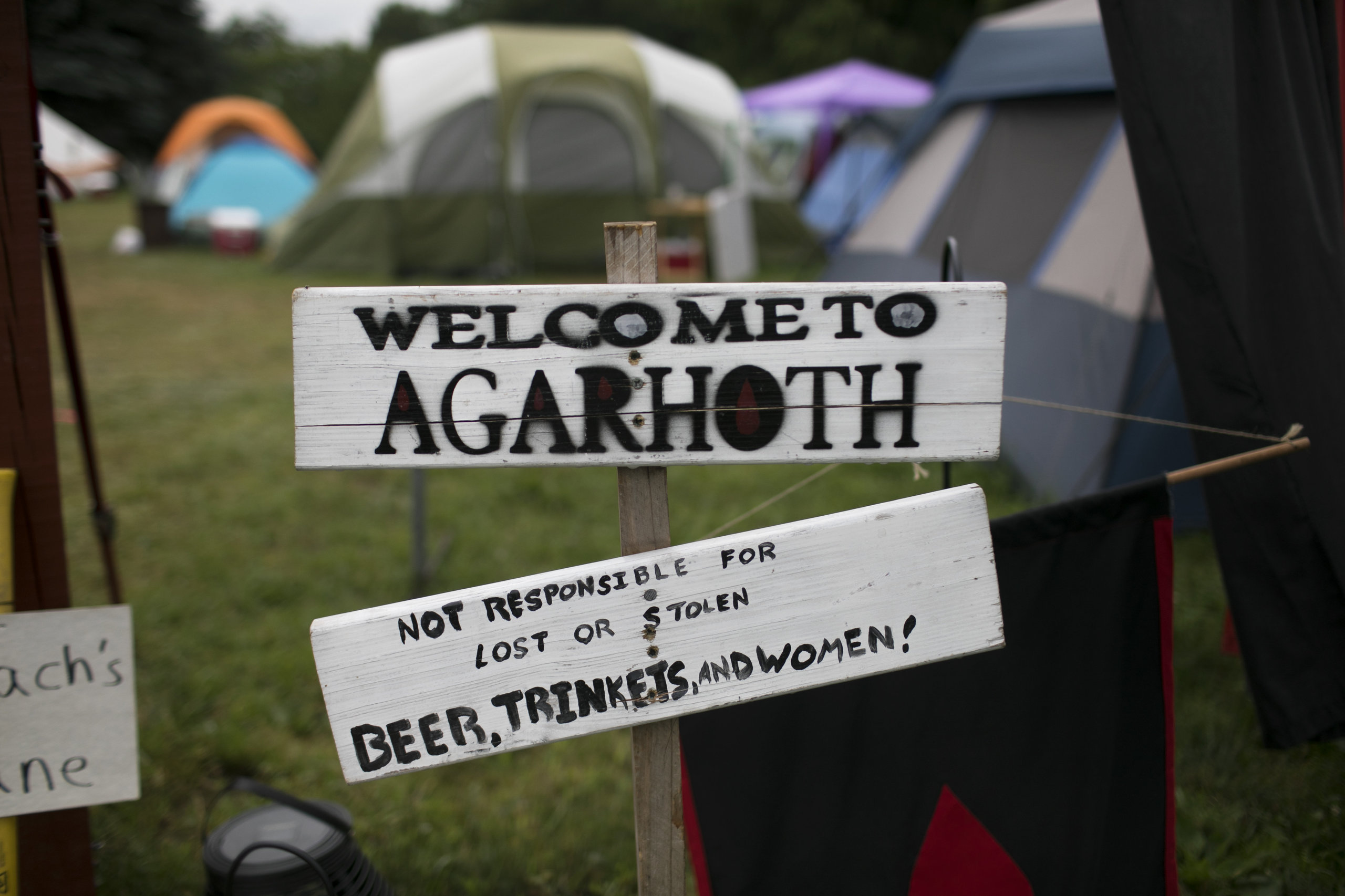
Maddie McGarvey for HuffPost
Until this year, when so many industries felt the foundation-shaking effects of the Me Too movement, many of the women we spoke to felt as though Ragnarok leadership was incapable of handling infractions when they occurred, leaving them feeling inconsequential and overlooked.
“You get shamed into not saying anything,” Hoffman said.
Part of this stems from the fact that Ragnarok operates like its own self-contained world. There are no police officers on-site, only volunteer public safety personnel and members of the event’s various local and national boards.
The bureaucracies that govern the national organization, Dagorhir, and its main event, Ragnarok, are convoluted. Dagorhir is organized by an elected board of directors (a president, vice president, secretary, treasurer and magistrate). But Ragnarok has its own board of directors ― which, for years was made up of a president and vice president ― as well as a business council that includes a secretary, treasurer and event coordinator.
Hoffman described the event’s leadership as a “shadow board,” suggesting its deliberately complicated setup muddled transparency and accountability.
Within Dagorhir, a magistrate-run war council composed of two representatives from each active participating unit is responsible for setting rules on and off the playing field and determining disciplinary action if necessary. Ragnarok, now in its 33rd year of existence, operates its own war council on top of that, populated by a representative from each active chapter, of which there are about 40 in total.
However, despite the plethora of authorities, Ragnarok didn’t have a code of conduct outlining harassment and sexual misconduct until its 2017 event. Dagorhir didn’t adopt it game-wide until this year.
David “Graymael” Vierling, president of the Dagorhir Battle Games Association since August 2017, confirmed to HuffPost that there was previously no system in place to outright ban offenders of sexual harassment or assault. But now that he’s president, he’s working on fixes.
“When I became president, I inherited a number of issues,” he said. “What I have tried to do in my time in office is correct those issues and put in place steps to protect our membership from predators.”
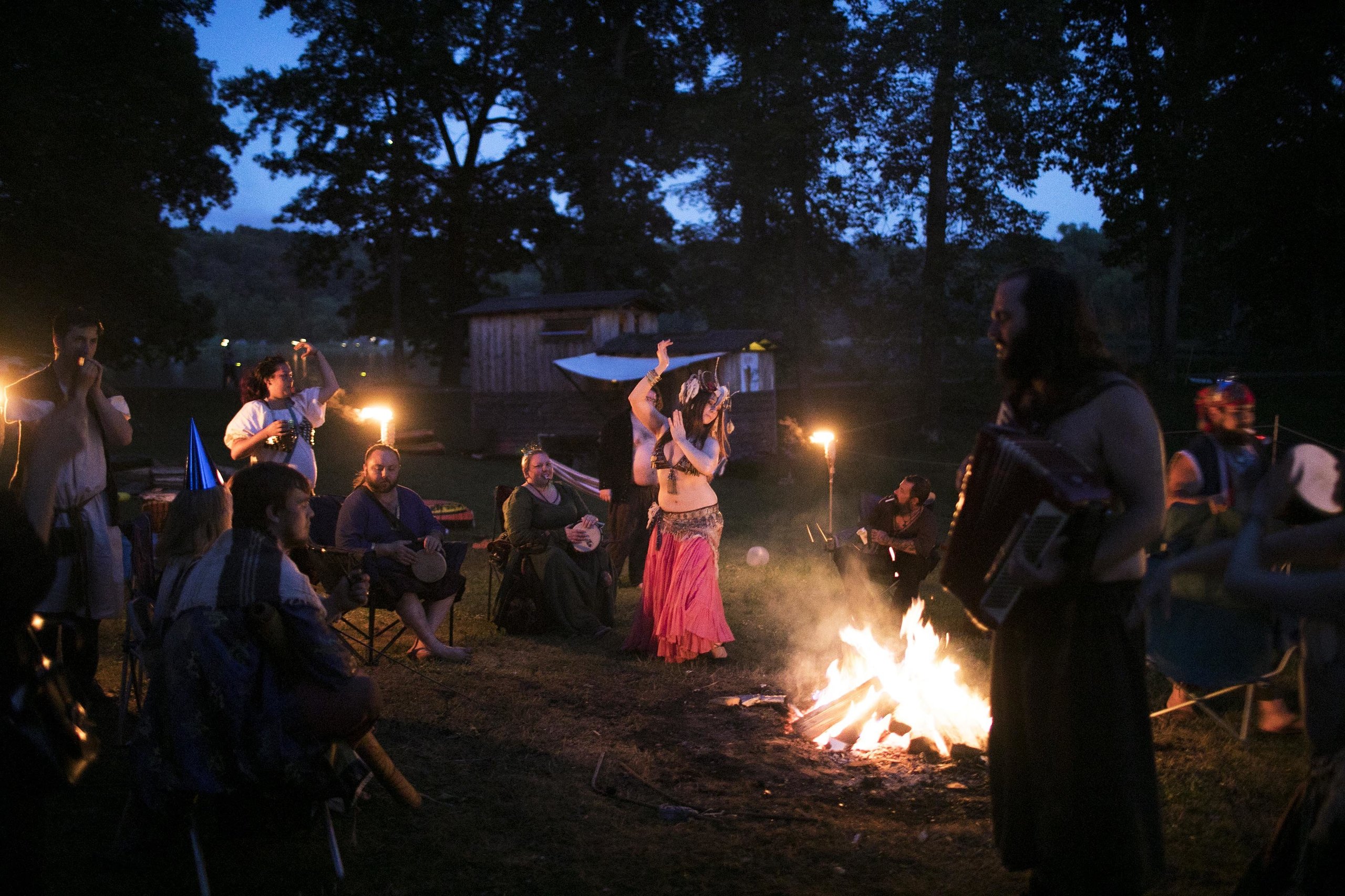
Maddie McGarvey for HuffPost
For many women, the lack of explicit penalties for misconduct smacked of tacit permission, especially when offenders of harassment or assault were “great fighters” or powerful “unit leaders,” Hoffman said. With a culture of silence and no direct support system for victims, women often kept the traumatic experiences they faced hidden.
As attendee Lauren Partlow, a vampire-elf hybrid who goes by the name Phoenix, put it, “they don’t know who to talk to and they don’t think they’ll be believed.”
For years, in lieu of official rules, Ragnarok attendees said they turned to self-policing and other forms of vigilante justice when misconduct did occur. In conversations with HuffPost, men and women agreed it was foolish to roam the campgrounds unaccompanied at night, lest someone act inappropriately.
“You’re always going to get a drunk idiot,” a Blood Horde member named Vyce said.
Many female Dagorhirrim referred to brother-type figures who would protect them and settle the score if anything unsavory occurred. An orc who goes by the name Fugdat told HuffPost he’d “stomp a mud hole in someone’s ass” if someone in his unit was hurt.
“I travel with a mug that weighs about five pounds, that’s my self-defense,” said Dag regular Beckie Kindergan. “Drink goes in face, tankard goes in face, foot goes in nuts. You still wanna play?”
Even Hoffman said her customary reaction to gendered abuse was to “beat the shit” out of the man who hurt her ― on the battlefield, that is. “Nothing is more embarrassing for someone who hates women than to get their ass whooped by a 4 foot 11 one,” she said.
Yet despite the lack of regulations or recourse, women continue to show up at Ragnarok, year after year, of their own volition.
“This game has given me the opportunity to grow in ways I never thought I could,” a woman by the Dag name Enyo, who’s married to a fellow attendee, told HuffPost.
In fact, many of the women HuffPost interviewed said they felt as safe, if not safer, at camp as in the outside world. “Jerks are everywhere, you know,” said Kathleen Brindley, whose Dag name is A’line. “Dudes who would catcall you on the street also join nerd games.”
Ragnarok, she added, felt less hostile toward women than many of her college classes.
“Here we have a fighting chance,” Hoffman said. ”In real life, I have to worry about whether the guy has a gun.”
“I Was Too Drunk To Stand, Let Alone Make The Choice”
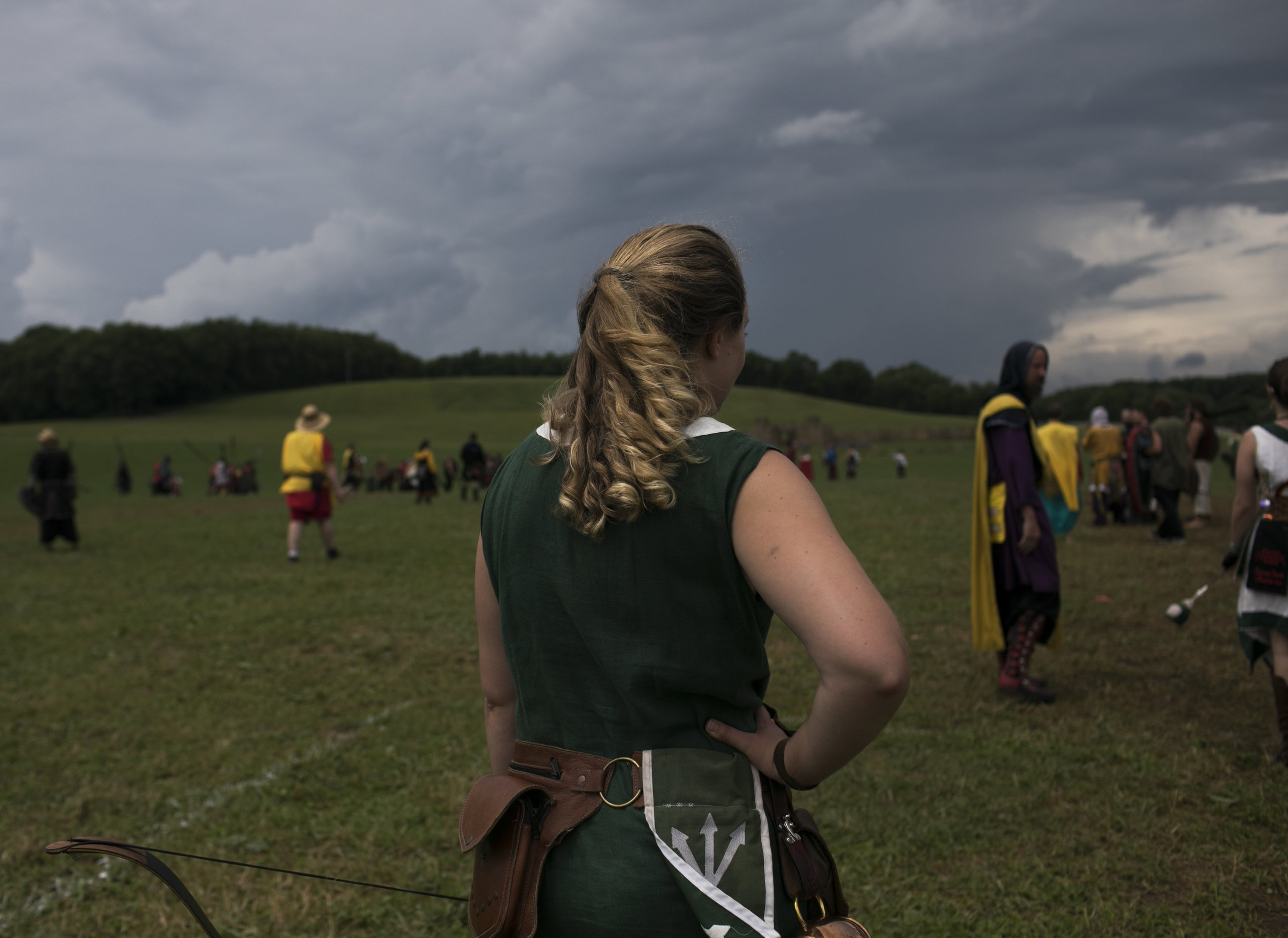
Maddie McGarvey for HuffPost
Because Ragnarok is an extremely tightknit community, rumors of sexual activity and misconduct travel fast. Hoffman recalled how, in her first years at Ragnarok, she landed a “horrible reputation” after having consensual sex with certain attendees.
However, the familial bonds that unite Ragnarok also have their benefits. Women described maintaining a whisper network to spread word of men who should be approached with caution.
In more recent years, this whisper network has played out on social media, which provides a venue for allegations and discussions to unfold outside the fantasy realm. In June, Hoffman was scrolling through Facebook when she stumbled upon a post in which her friend, who preferred to remain anonymous due to potential repercussions, came forward with one of her “Me Too moments.”
In the post, she accused a prominent member of the Ragnarok community of molesting her when she was 12 and 16 years old. She warned her Facebook friends ― including her teenage niece ― to steer clear of the man, whom she described as “dangerous” and “trash.”
Hoffman was stunned. Not only because she had been friends with this man for years, but because, Hoffman said, she was raped by him at a party in 2017.
Max, a pseudonym for the man whom Hoffman described as a “wolf in sheep’s clothing,” played an influential role at Ragnarok events, and according to Hoffman, was known to publicly expound upon the importance of heightened safety and transparency within the community. He presented himself, loudly, as a protector of women.
However, Hoffman’s description of her experience with Max positions him as the opposite. When they both attended a house party not affiliated with Ragnarok in 2017, Hoffman said she blacked out from alcohol consumption. When she came to the next morning, Hoffman told HuffPost, she found herself on the lower level of the house, sore and covered in semen. Max was lying alongside her.
Hoffman was traumatized, she recalled. Max admitted to her that they had sex but refused to consider it rape, she said, first denying Hoffman was too drunk to consent, then blaming the offense on an alternate personality. Finally, she said, he claimed he too was blackout drunk. So she blocked Max on Facebook and cut him out of her life.
“I never consented,” she told HuffPost. “I was too drunk to stand, let alone make the choice to have sex.”
The post accusing Max of sexual misconduct received over 400 comments. Other women shared stories of disturbing experiences with him, including rape. Hoffman said there were accounts that were almost exactly like her own.
HuffPost spoke to burlesque performer Bella La Blanc, who commented on the Facebook thread. She told HuffPost that Hoffman was the third person she knew personally to accuse Max of sexual assault. La Blanc said she took care of another close friend who also described being raped by him.
“Three people who don’t know each other, all with a similar story,” she said. “What do they have to gain?”
“That person is a missing stair,” La Blanc concluded.
“There Are Missing Stairs Everywhere”
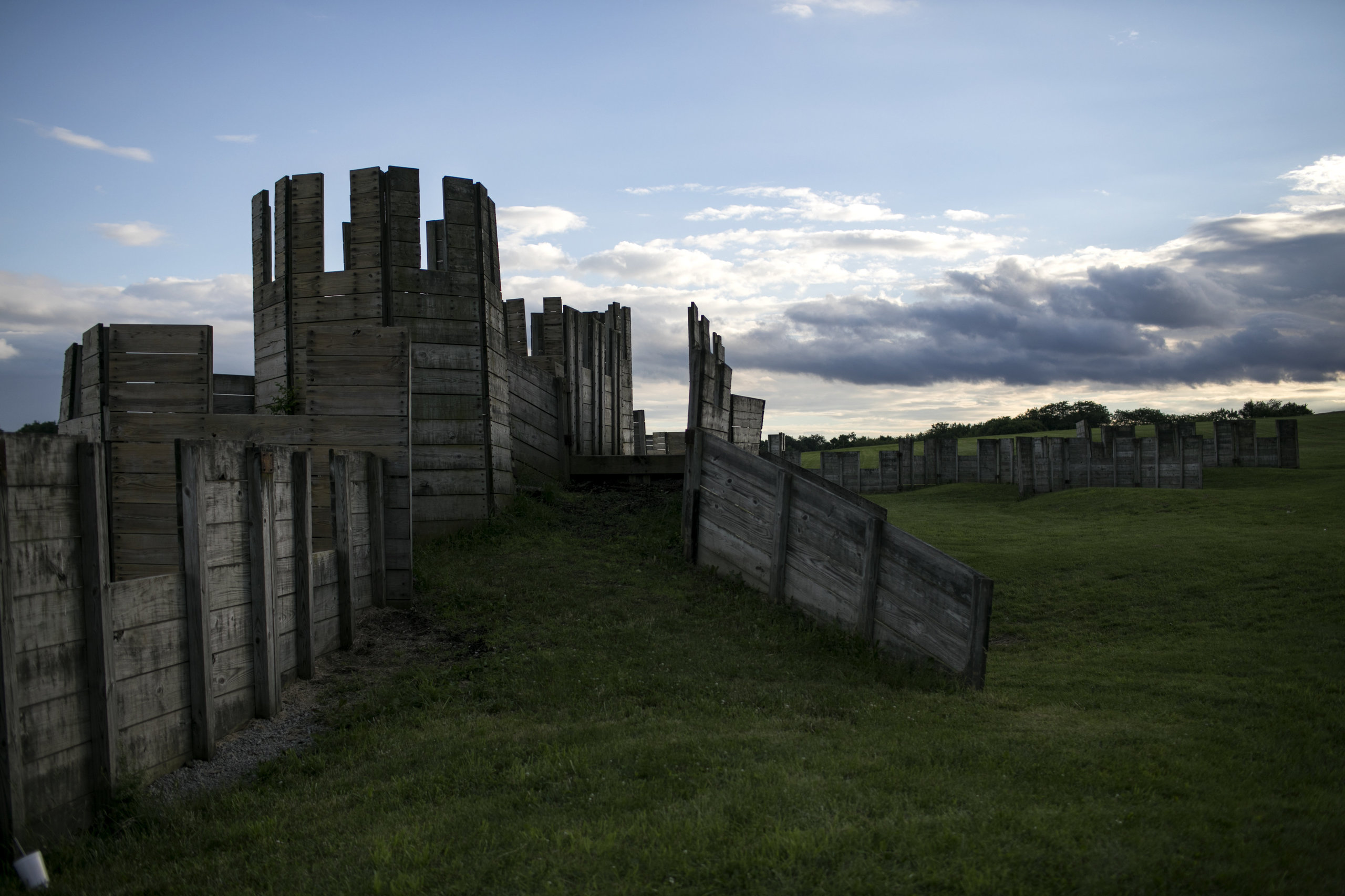
Maddie McGarvey for HuffPost
Imagine one step among many that’s wobbly or broken. Instead of fixing it, people walk around it, quietly cautioning others to step over it to avoid harm. If someone does slip and get hurt, the blame falls upon her ― she wasn’t careful enough! ― or is framed as an unfortunate accident.
The term was coined in 2012 by a blogger who uses the pseudonym Cliff Pervocracy. In a piece describing sexual misconduct in kink and BDSM circles, he described a missing stair as “something you’re so used to working around, you never stop to ask ‘what if we actually fixed this?’”
“Eventually you take it for granted that working around this guy is just a fact of life,” he continued, “and if he hurts someone, that’s the fault of whoever didn’t apply the workarounds correctly.”
The analogy took off. Members of niche communities from porn to paganism used it to describe members whose toxic behavior was willfully overlooked. At Ragnarok, “there are missing stairs everywhere,” Marozzi told HuffPost. It was up to attendees to “be smart,” as one participant put it, and avoid the lurking danger. Eventually, however, one missing stair became so glaringly treacherous, bystanders finally took notice.
Scott, 33, of Bangor, Pennsylvania, attended Ragnarok and other Dagorhir events for years. In 2012 he faced charges of child pornography and sexual abuse, and later pleaded guilty to a charge of corrupting a minor in that case.
In 2014, the Ragnarok community got wind of the charges. Word of his alleged crimes spread fast, and a contingent of unit leaders pressured Dagorhir officials to ban him from future events, especially Ragnarok, which he frequented.
But there’s always been confusion among the war councils over who, if anyone, had the authority to officially eject Scott from all Dagorhir events and chapters, as emails from chapter officials and board meeting minutes provided to HuffPost show. But despite years of protests from the community, Scott continued to attend, until he was charged in 2016 for allegedly assaulting a fellow attendee on site. He pleaded guilty to disorderly conduct in that case. He’s now in jail awaiting trial on a slew of charges unrelated to his affiliation with Ragnarok, including rape and corruption of minors.
After the 2016 incident, Scott was officially banned from Ragnarok by that event’s war council. But for the attendees who urged officials to take action prior to his arrest, the dictate was too little, too late. At the time, attendees still had no national code of conduct outlining consequences for behavior like his, and felt as though there were few official avenues for victims of assault and harassment.
“The Ian Scott issue was ugly,” said Steven Foster, Ragnarok’s event coordinator, whose Dag name is Timmourne. “He ended up being a known threat and no national action was taken until it was too late.”
In the shadow of Scott, Foster and a number of new faces on Ragnarok’s board of directors helped to pioneer structural changes he and many others felt were long overdue, including the institution of a nationally synchronized code of conduct for all of Dagorhir, the designation of a physical space for people who feel unsafe on Ragnarok grounds, and the creation of an official Ragnarok arbiter position, responsible for responding to and assisting victims on site.
“We Went Out Of Our Way To Make Sure Our People Were Safe”
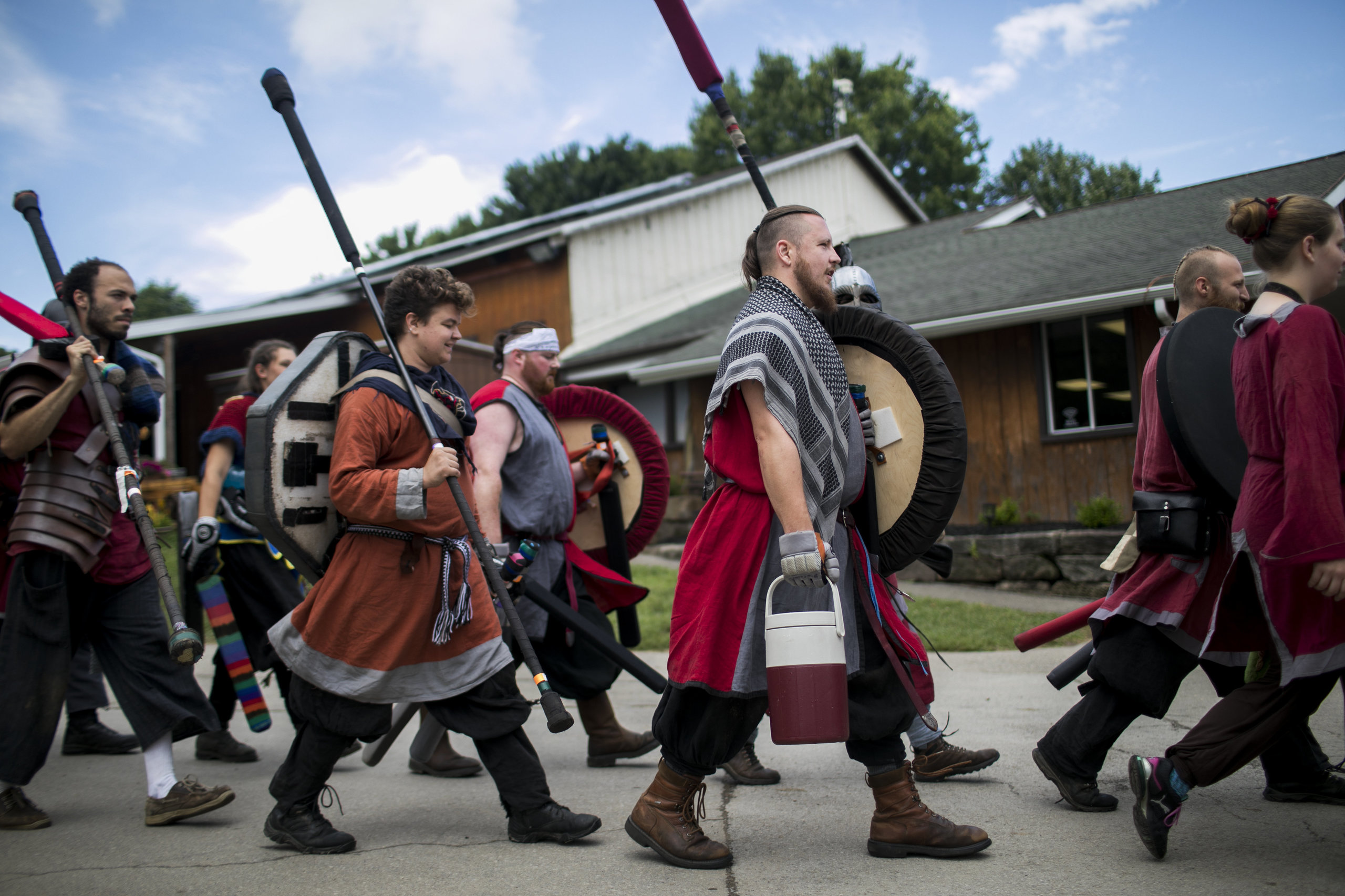
Maddie McGarvey for HuffPost
In 2018, every Ragnarok attendee received two items upon arrival: a silver pendant, or “Rag Tag,” that served as their ticket to the event, and a survival guide pamphlet, outlining the rules and regulations governing life within the camp.
On the survival guide’s table of contents ― a version of which can be found online ― the code of conduct explicitly outlines that “participants must refrain from actions that would limit or threaten another individual’s safe enjoyment of the event by another person or societal standards.”
The code contains mandates like “Harassment of any kind will not be tolerated” and “Consent is essential.” It explicitly states that people who are intoxicated or unconscious cannot legally consent, and that one can “withdraw consent at any moment you feel uncomfortable,” adding “just because you consent one time does not mean you consent to any future act.”
The code directs Ragnarok attendees to security and medic volunteers in the event of a safety concern. Additionally, if a Ragnarok attendee fails to adhere to these mandates, the code clearly outlines the consequences awaiting him or her. They range, depending on the severity of the incident, from mediation sessions between involved parties to the removal of individuals or groups from campsites to banishment from Ragnarok entirely.
The person responsible for determining consequences is the arbiter. Elected by Ragnarok’s war council, Foster hopes the adoption of the arbiter position will prevent communication breakdowns like the one preceding Scott’s arrest.
Longtime Dag participant Lauren “Phoenix” Partlow, the vampire-elf hybrid mentioned earlier, was elected this year to fill the arbiter role, both because of her dedication to the magical world and her National Board for Certified Counselors (NBCC) credentials.
“In the event that anybody does something to another player that is severe enough to warrant official action, I’m ultimately the person that it comes to,” she told HuffPost. Partlow selected one of her fellow candidates, whom she declined to name, as her assistant.
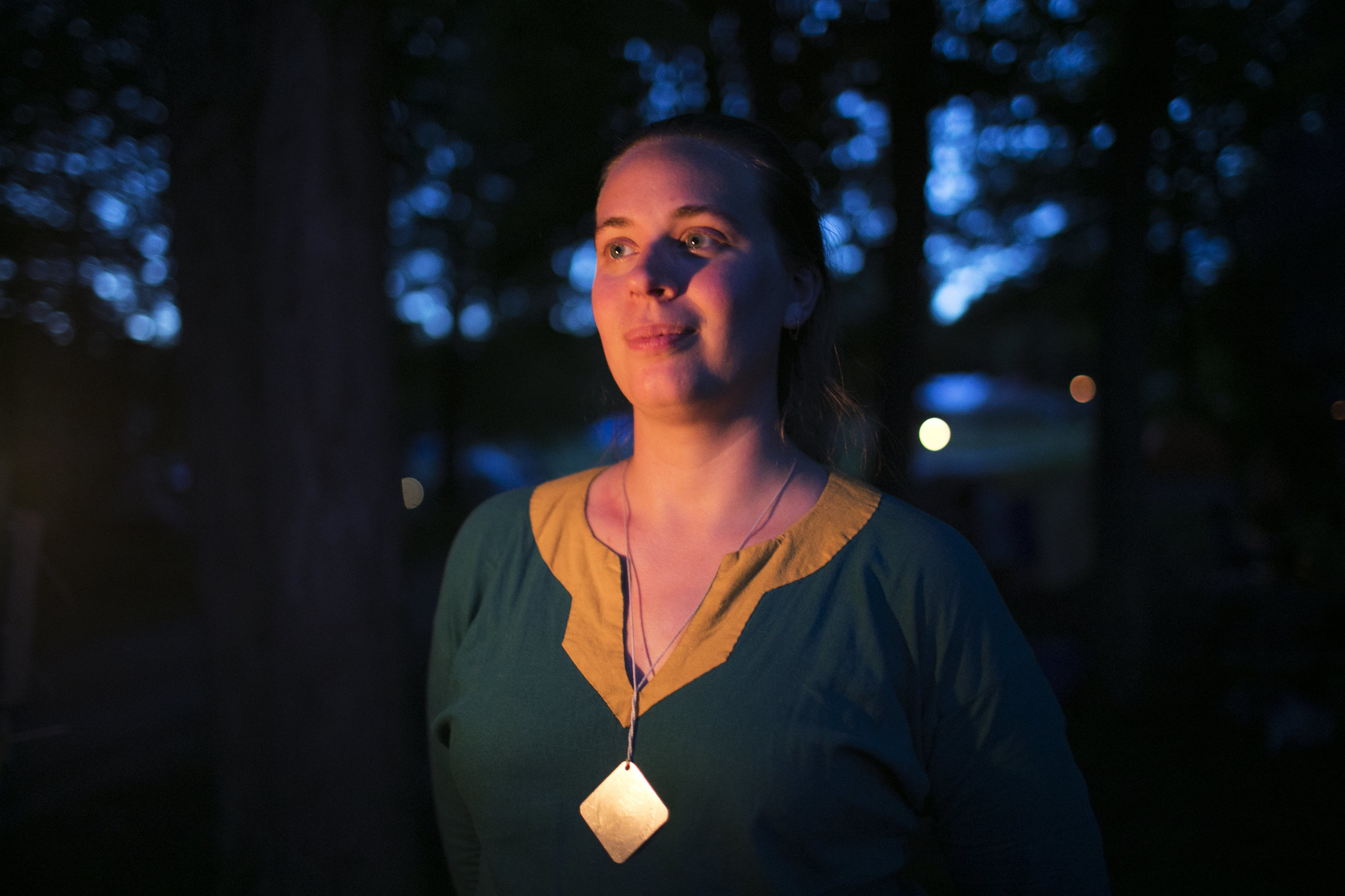
Maddie McGarvey for HuffPost
This year, Partlow also served as the head of an advocacy program, where her primary responsibility to those who’ve endured instances of harassment or assault is to listen. “The vast majority of rapes are not reported because women legitimately believe that nobody’s going to believe them, because rape is the one crime where you have to first prove that a crime was committed,” she said.
Then, she speaks with each attendee on a case-by-case basis about how she or he wants to proceed. Calling the hospital and police are both options, although Partlow said she respects a victim’s privacy should they not want to alert the authorities or leave camp. No matter what steps are taken, Partlow will alert the internal organization to what occurred, so all incidents will be documented and processed through a unified, streamlined system.
Moving forward, Partlow will turn over her position as head advocate to another person in the advocacy program, so she can investigate allegations of wrongdoing as an arbiter with total impartiality. Although she was only appointed recently, Partlow is optimistic that the very existence of these new programs and positions will discourage Dagorhirrim from crossing lines of decency.
“This year I’ve really seen people step up and take care of each other in a way that shows a lot of maturity,” she said.
When HuffPost visited Ragnarok in June, many attendees expressed that the event was in the midst of a positive transformation. But the community was also abuzz about an incident involving a female fighter who believed she was drugged at Thunderdome, a Ragnarok party described by one attendee as a “Mad Max rave.”
At Thunderdome, tricked-out guitars launch flames into the night as warriors “night battle” to boisterous applause. When we attended, the venue was packed with hundreds of people ― most of them drunk ― fire-dancing, singing and luxuriating in the most over-the-top party of the week.
Johanna ― who asked to be referred to by a pseudonym ― was drinking wine out of a wide chalice she purchased herself for the occasion. Around 10 p.m., she recalled, she started to feel “really weird.” The sensation was like nothing she’d felt before ― drowsiness, dizziness, total lack of control. She told her friends what was happening and they accompanied her back to camp, alerted public safety volunteers and asked to speak with an arbiter.
Johanna believes someone at Thunderdome slipped something into her drink, but has no idea who. She told HuffPost that friends and strangers were huddled around her at the party, and that she was drinking from an oversized cup that could have made it easier for someone to spike. Back at camp, Johanna began throwing up.
Parlow was dealing with another complaint that night, she said, and didn’t herself speak with Johanna. Another volunteer went in her place, though she declined to name who.
Johanna said a public safety volunteer came to speak with her, but she doesn’t recall much of the conversation. The volunteer left without calling the police or the hospital. Johanna doesn’t remember whether she was asked if she needed either one, only that she passed out for three hours and woke up feeling better.
When asked about the incident, Foster told HuffPost that the “individual was offered medical treatment, police intervention and talked to the advocate on duty.” Because Johanna dropped her drink while vomiting, Foster said, volunteers could not test it for rohypnol or other drugs.
“But we went out of our way to make sure our people were safe,” he added.
“Everything That’s Happening Nationally Is Happening Here”
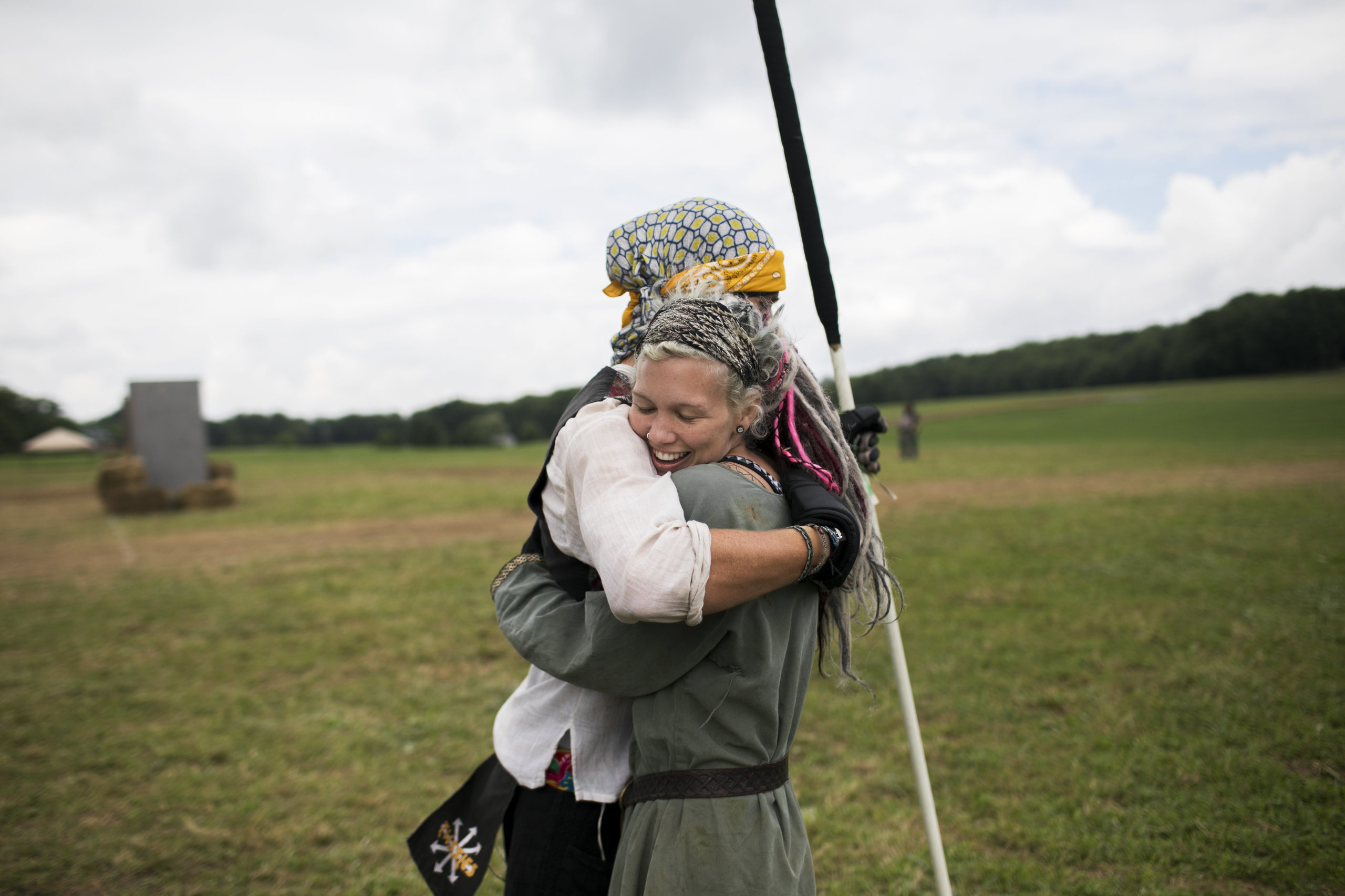
Maddie McGarvey for HuffPost
While some attendees cited the Ian Scott debacle as the impetus for Ragnarok’s recent changes, others referred to the larger sea-change that has inflected nearly every industry, community and niche, especially those that are traditionally male dominated: the Me Too movement.
In interviews with HuffPost, female participants discussed how the Me Too movement has emboldened women to share their experiences without shame, and alerted men to the kinds of aggressions women will not tolerate.
“Everything that’s happening nationally is happening here,” Gedra told HuffPost. “Women are speaking up more and men are believing them.”
Even within Ragnarok’s mythology, women are asserting their power like never before. Every year since Ragnarok 27, the event’s weeklong battle sequences end with what was formerly known as the King’s Battle, in which the last man standing was crowned king and reigned over the next year’s festivities. During Rag 31, a fighter who went by Sirilay became the first woman to triumph over the field, winning the title alongside Theowyndwood Keyote. For the past two years, Gedra and another female fighter, Ianje Castallanos, whose Dag name is Fyxe, were the victors. Fittingly, in 2018, the same year sweeping changes meant to empower women were instated festival-wide, queens reigned over Ragnarok.
The final fight is now known as the Monarch Battle in their wake.
Castallanos ― one of the reigning queens ― said that pre-Ragnarok, she was an “indoor nerd” who felt uncomfortable in her own body. When she learned about the existence of immersive battles ― like video games in real life ― she was enthralled. “I wanna be Xena,” she recalled thinking. “That’s fucking dope.” The sport of combat helped her come into her own, channeling her joy and range into action and play.
Similarly, for Hoffman, Ragnarok isn’t just about the fighting or the parties or even the family she’s forged over the years. It’s about the ability to become the protagonist she never had growing up. “When I was younger, I loved Lord of the Rings, high fantasy and historical fantasy,” she said. “But there were never any stories about the women. I wanted to be a part of it more than anything. When I was younger, I thought I had to be a boy to do any of that. As I got older, I thought, I can literally write my own story. I knew I could keep up with the boys.”
Despite the obstacles they’ve faced, the women we spoke to at Ragnarok unwaveringly expressed a deep love for the miniature world and the people who occupy it. By sharing their stories of harassment and discrimination, they made it clear that they do not want to take down Ragnarok, but instead elevate it through transparency. Their sentiments echo those of women in film, music, media, gaming, dining, art, porn and beyond, who hope to puncture cultures of silence, shame and complicity so everyone involved can feel safe and valued.
“The Harder You Push, We’ll Push Back”
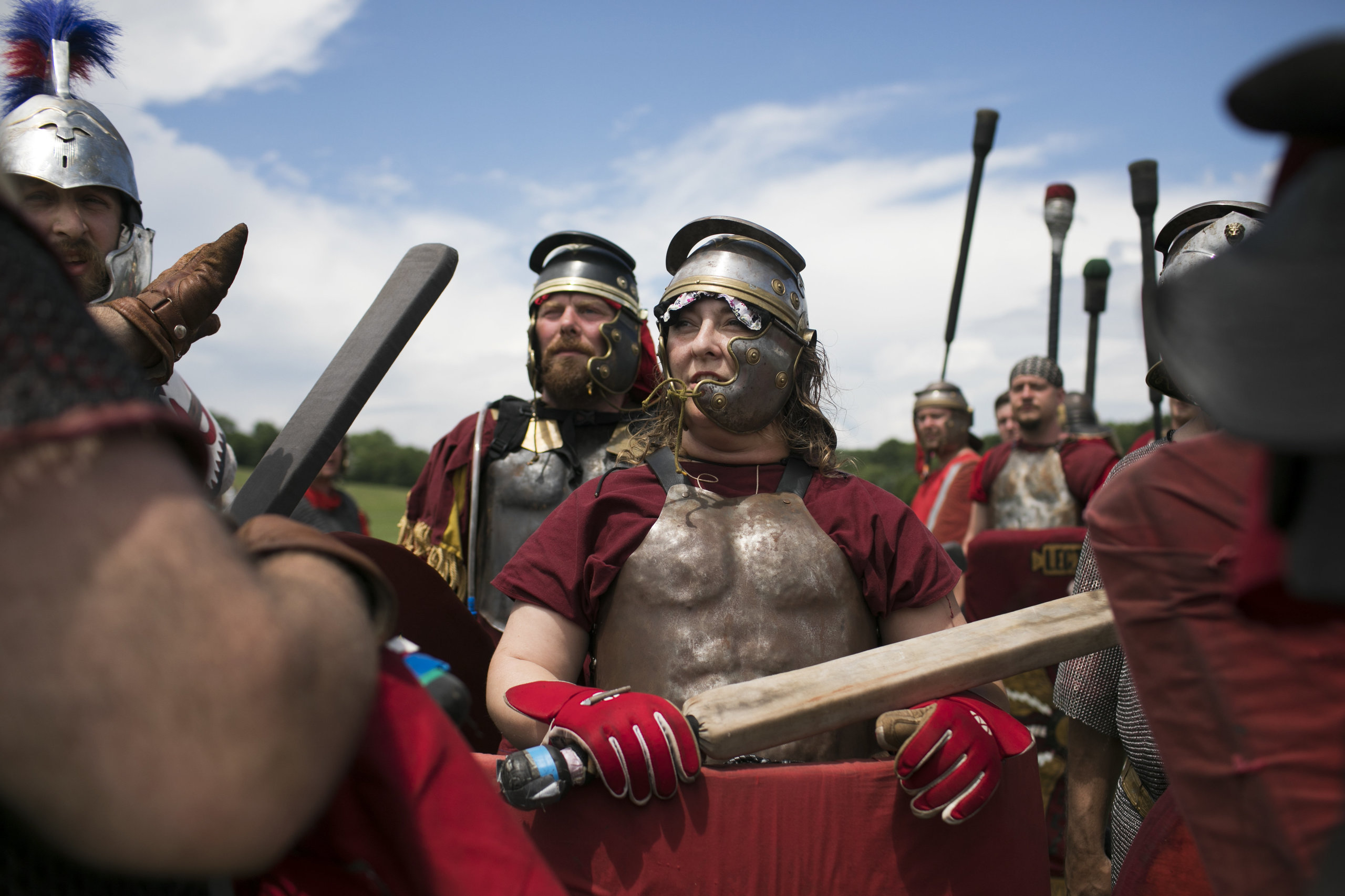
Maddie McGarvey for HuffPost
On a Saturday afternoon, as the final moments of this year’s Ragnarok battle approached, there had yet to be a single incident warranting an ambulance visit.
That changed when, amid a tussle of limbs, shields, arrows and pseudo-spears, a flash of red hit the ground, hard. A cloud of warriors, elves, orcs and hobbits formed around Hoffman, who was lying prostrate on the grass. She’d cracked her rib earlier in the week during a wrestling match and, in the thick of fighting, felt something pop.
Before long, the sounds of ambulance sirens cut through the grassy meadow, reverting what was, just moments ago, a mythical land in the thick of Middle Earth back to its humble, more contemporary origins ― a lakeside campground in Pennsylvania.
The ambulance drove Hoffman to the hospital, where she learned she’d suffered a hairline fracture to the rib. The feeling, she told HuffPost, was excruciating. “I couldn’t breathe, I couldn’t see,” she said. And yet just a few hours later, Hoffman was back at camp, determined to ride out the event’s final night.
“I couldn’t let them see me get hurt and not come back,” she said.
On and off the battlefield, the women of Ragnarok are fighters.
Hoffman spent the night in too much pain to lie down, instead sitting on a lounge chair propped up inside her tent. But, she said, it was crucial to show her peers that no matter how much adversity she faced, she would not back down.
“I have a right to be here,” she said. “All women have a right to be here. The harder you push, we’ll push back.”
In fact, all the pain she’s endured out of her love for Ragnarok has only intensified her commitment to its future. As she put it, “Every obstacle that comes up fuels this fire inside ― to be like, watch me.”
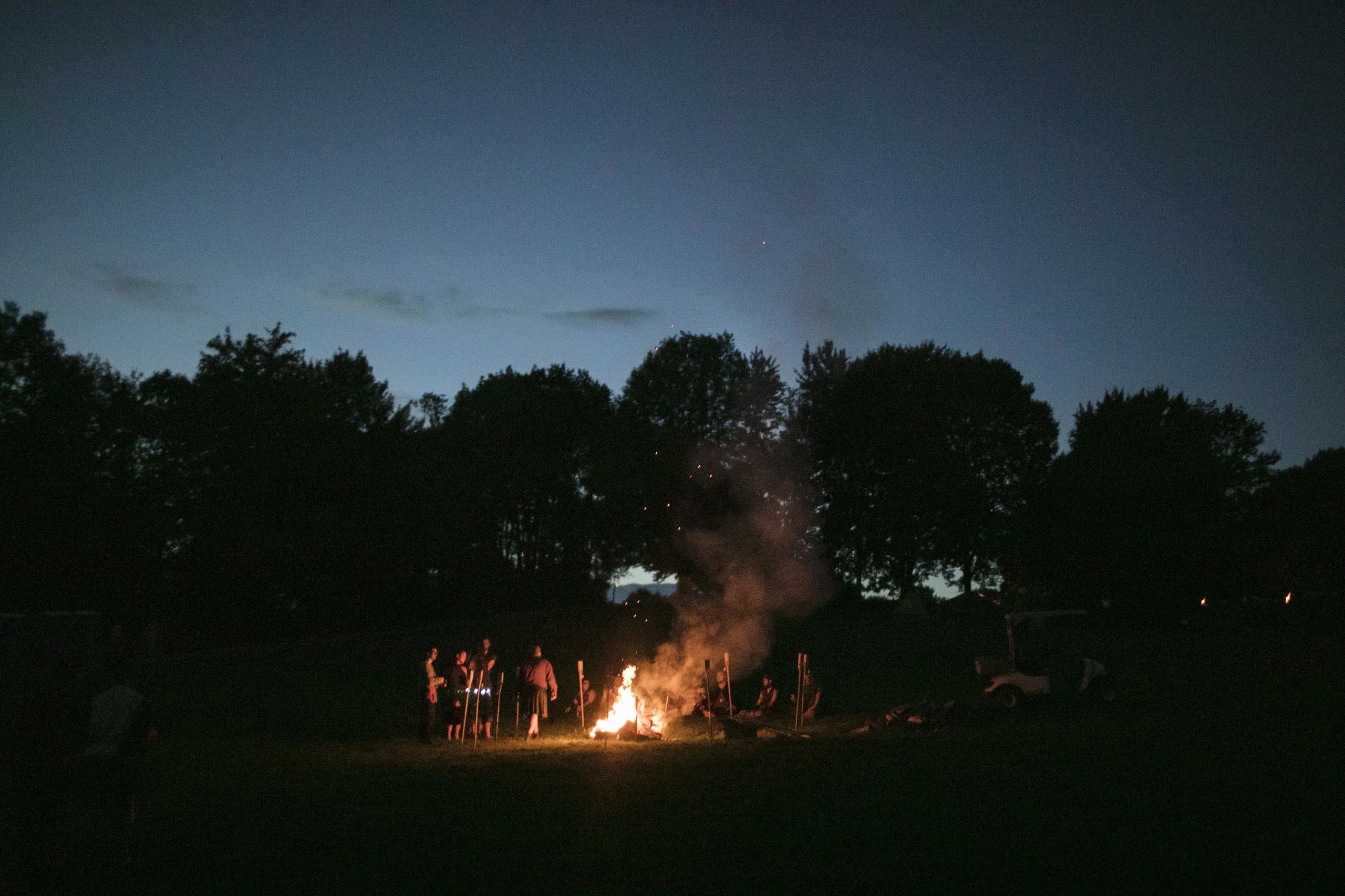
Maddie McGarvey for HuffPost
This piece has been updated to clarify details about Ragnarok’s arbiter position and advocacy program.
[ad_2]
Source link

